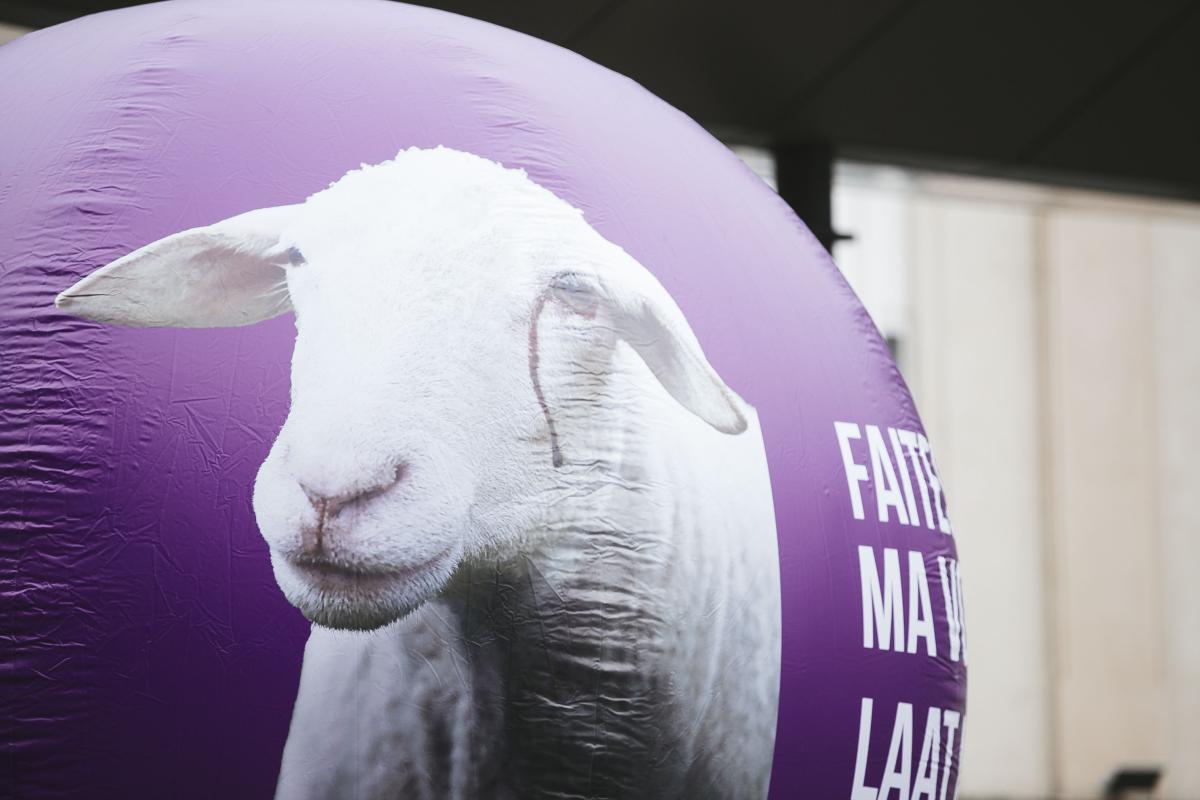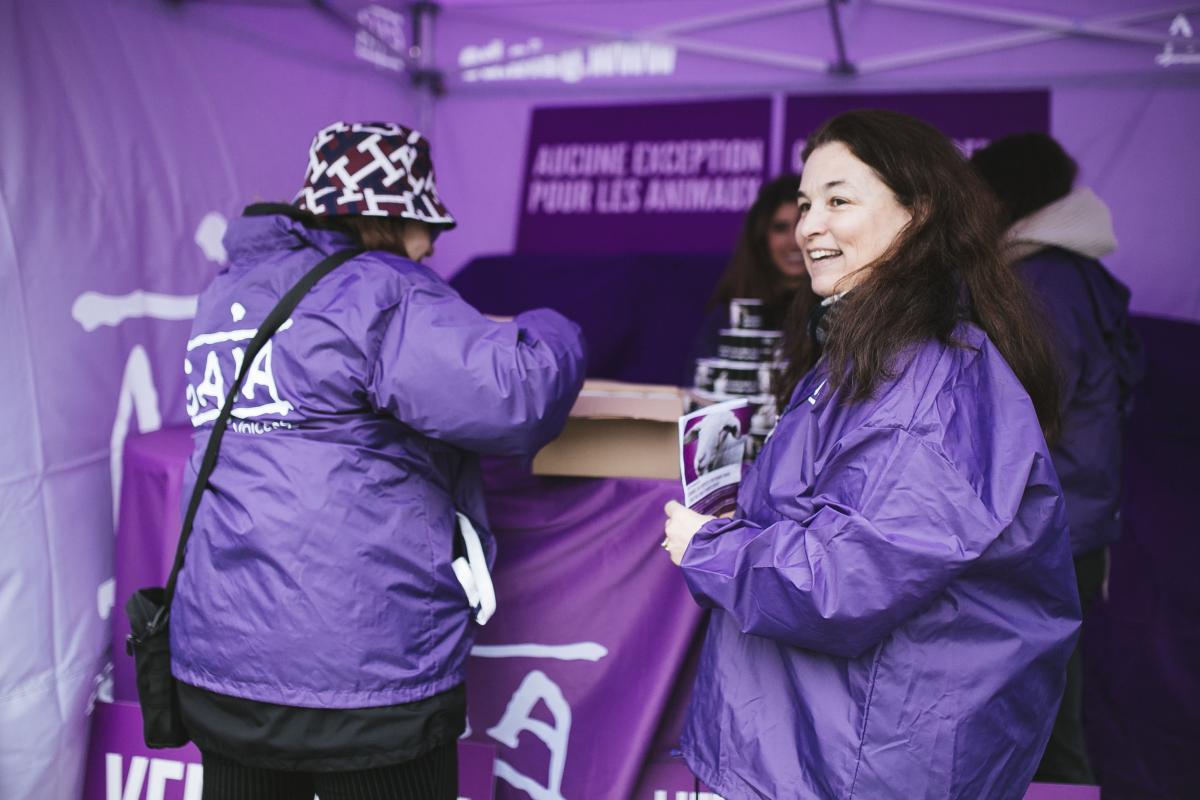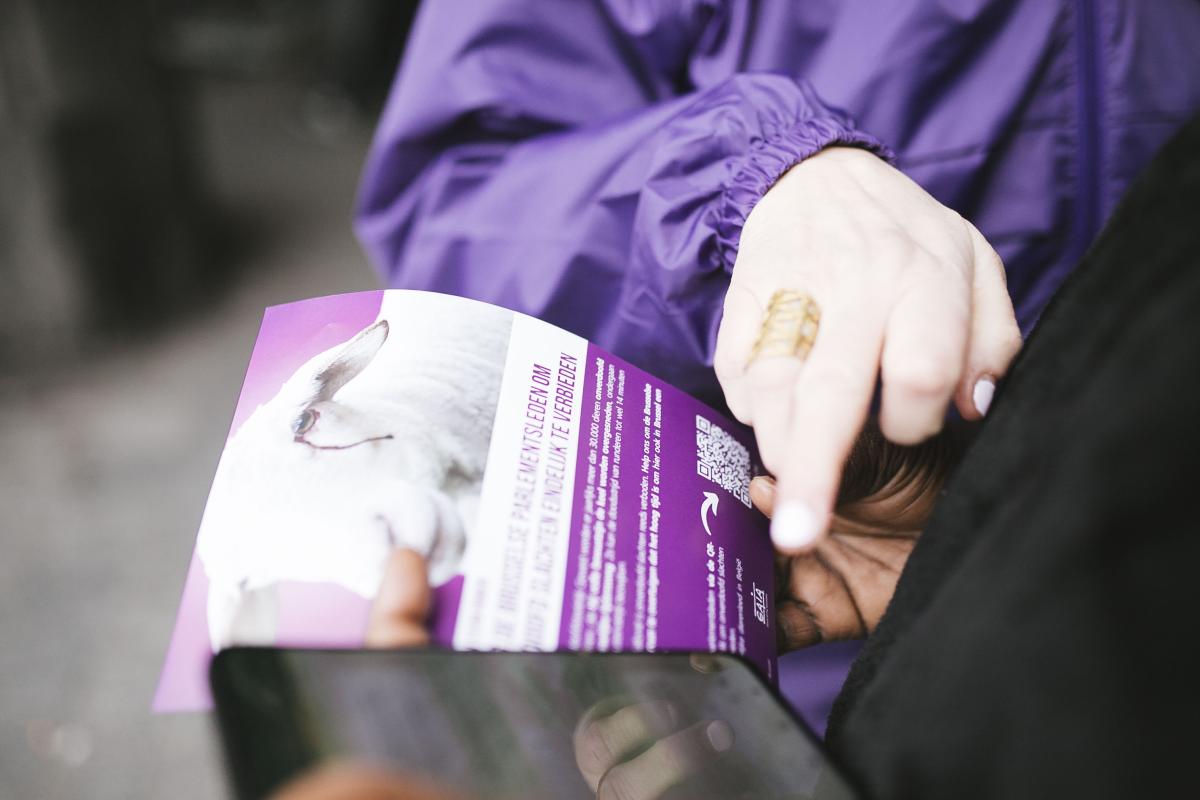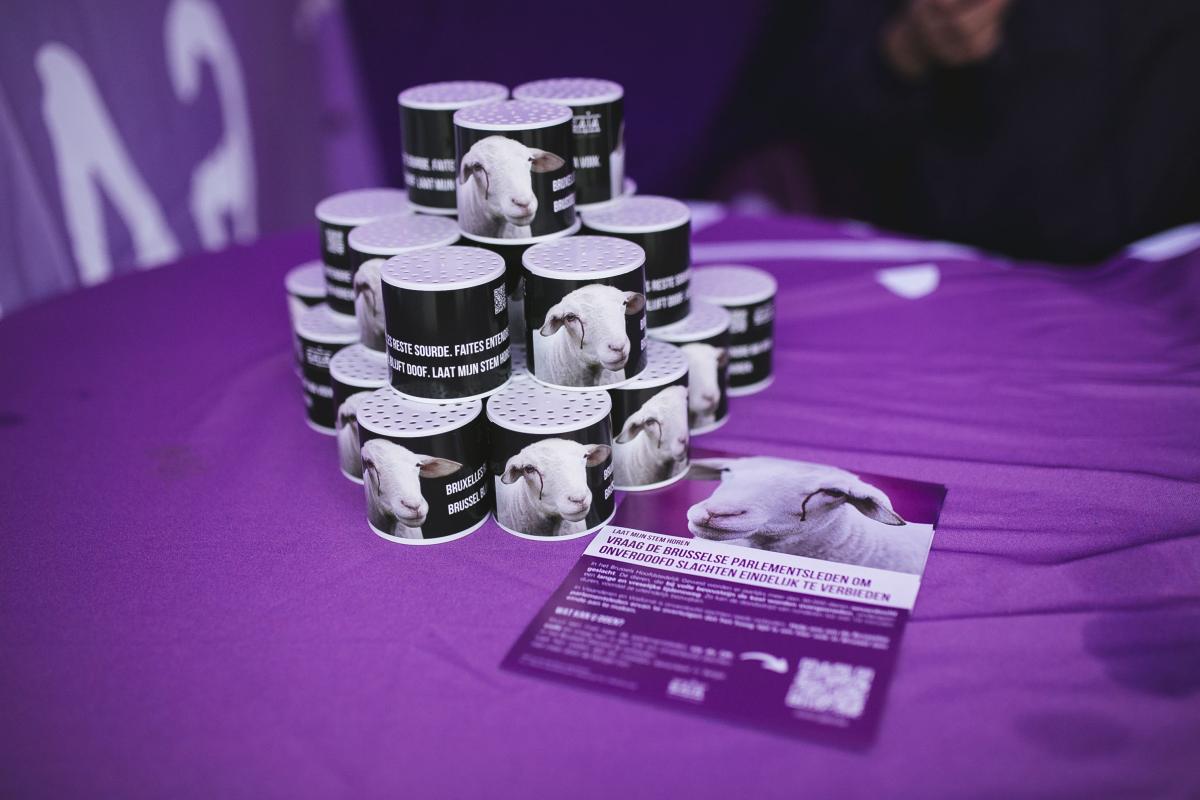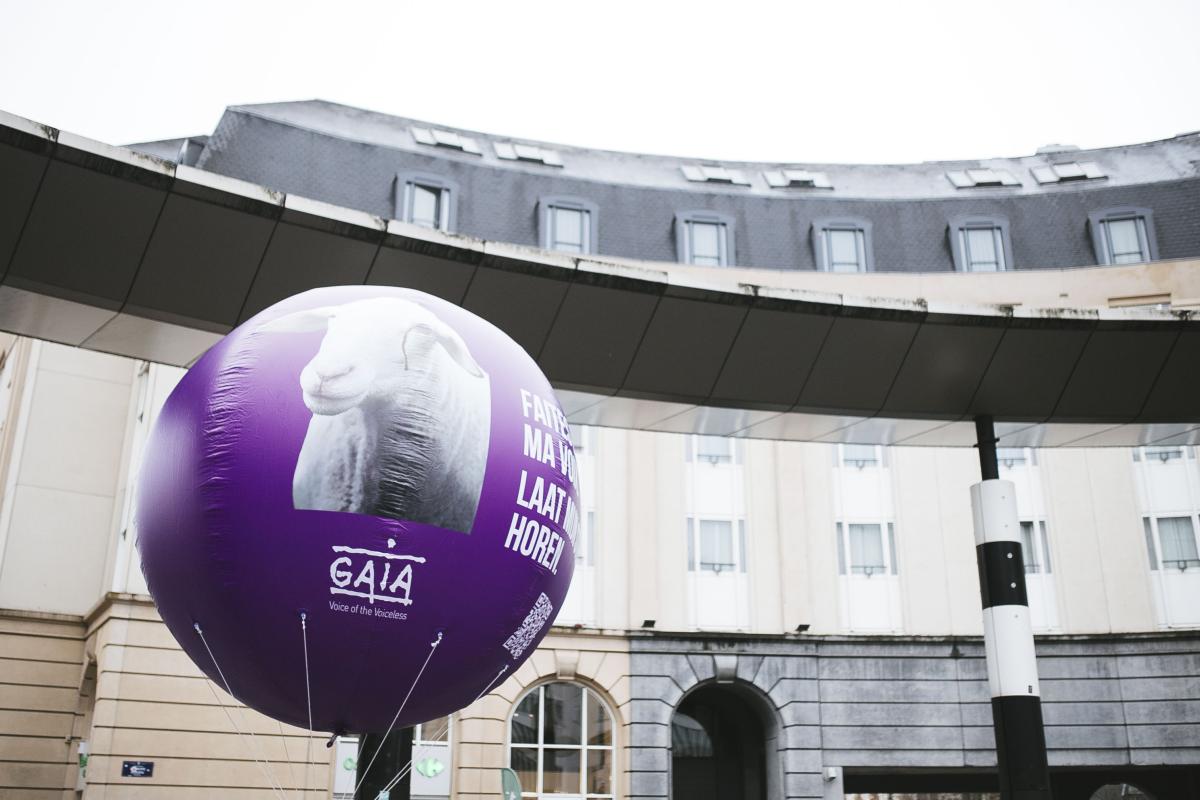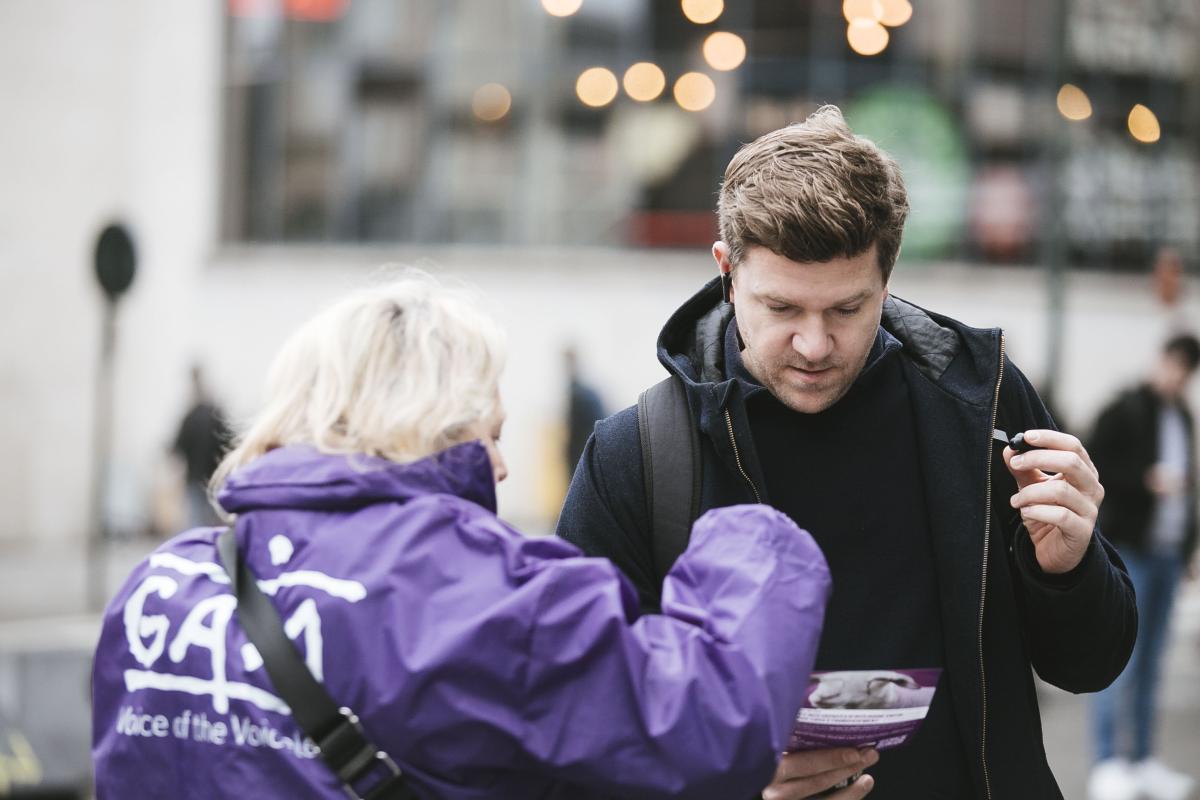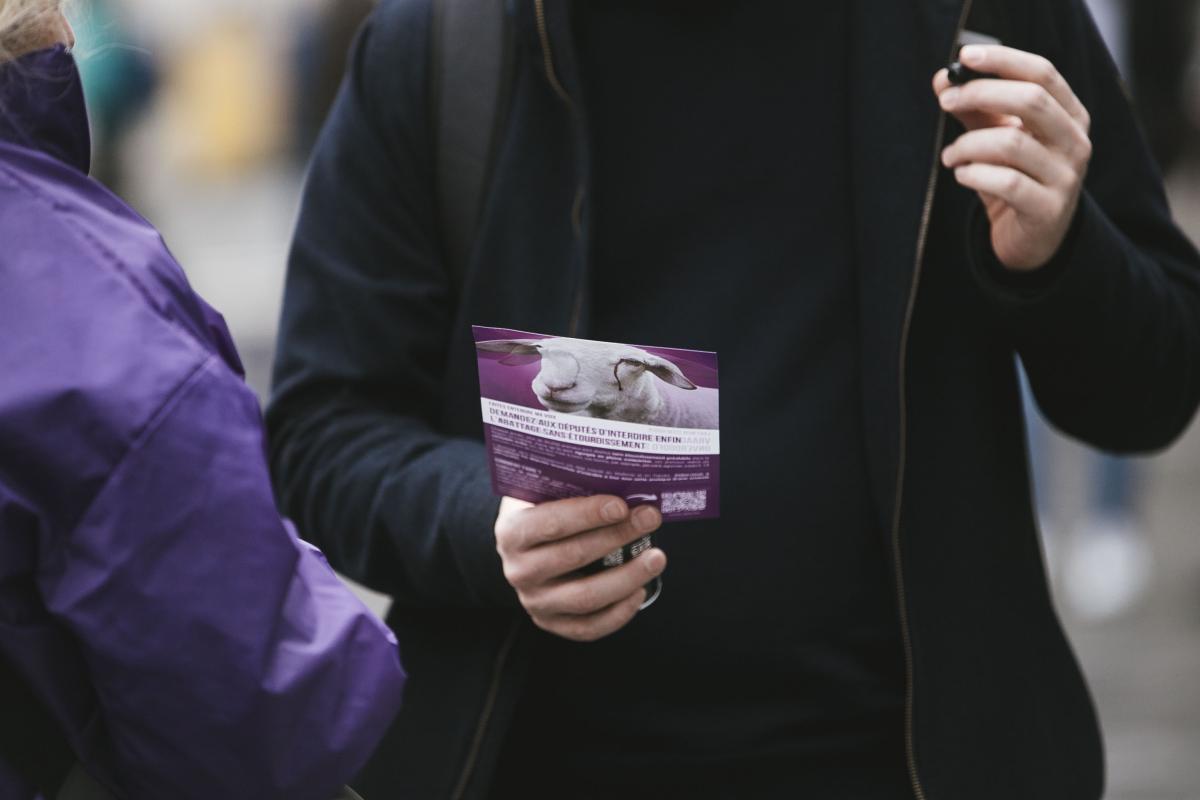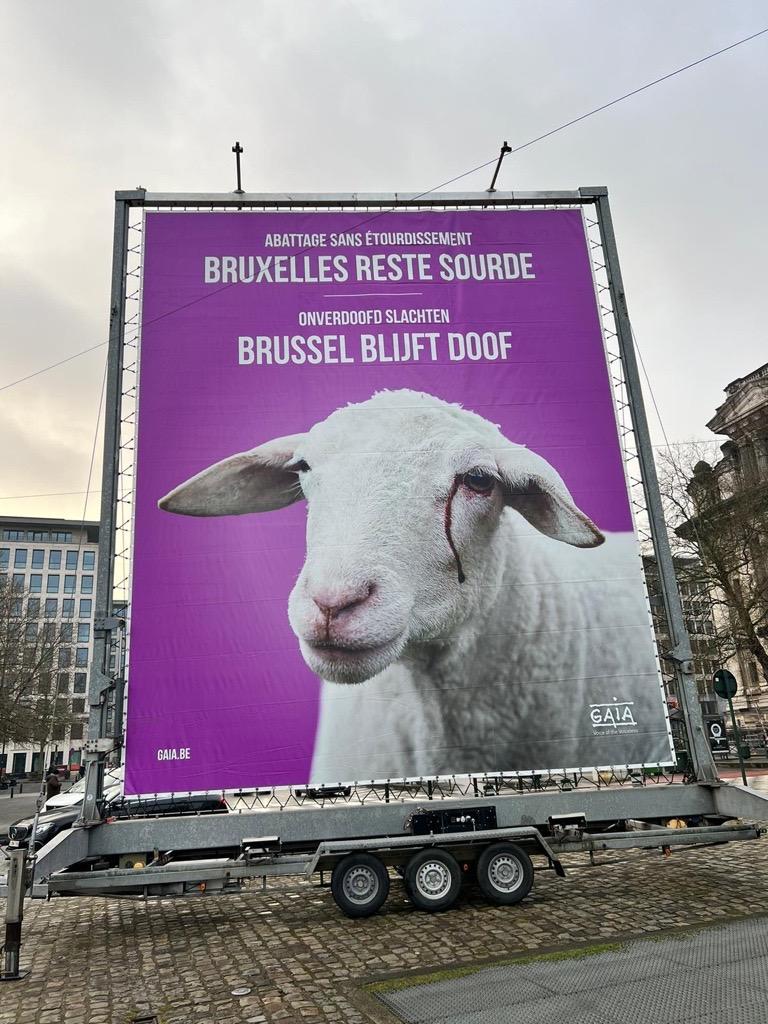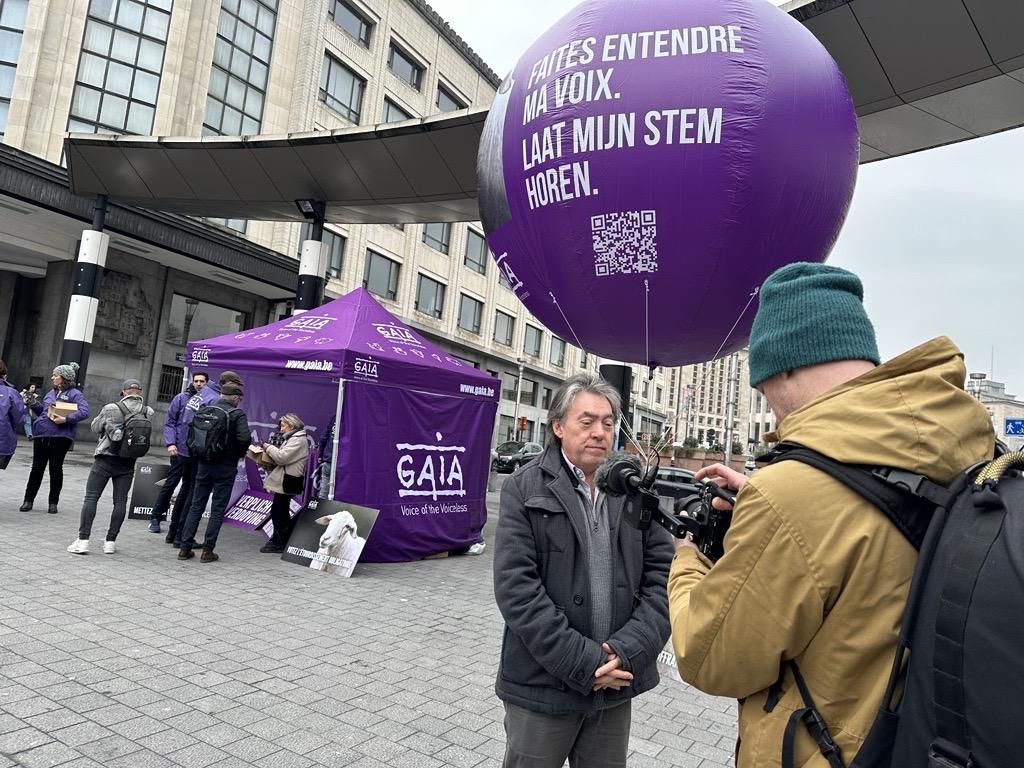Brussels remains deaf to the silent suffering of thousands of animals.
It is hardly believable: the Brussels Animal Welfare Code, soon to be put to the vote in Parliament, still lacks any provision to ban slaughter without stunning.
Despite the clear stances of veterinary associations concerning the terrible suffering caused by this practice; despite the favorable rulings from the highest legal institutions; despite polls indicating that a large majority of Brussels residents are in favor of this ban, the Brussels Region continues to turn a blind eye to this unbelievably violent practice.
Speak out for animals
Help us: send an e-mail now to the Brussels MPs asking them to ban slaughter without stunning in the Brussels Region.
Let them know that in a modern society like ours, it's unacceptable that animals should still be subjected to the long agony of slaughter without stunning. Thousands of animals need you to stand up for them.
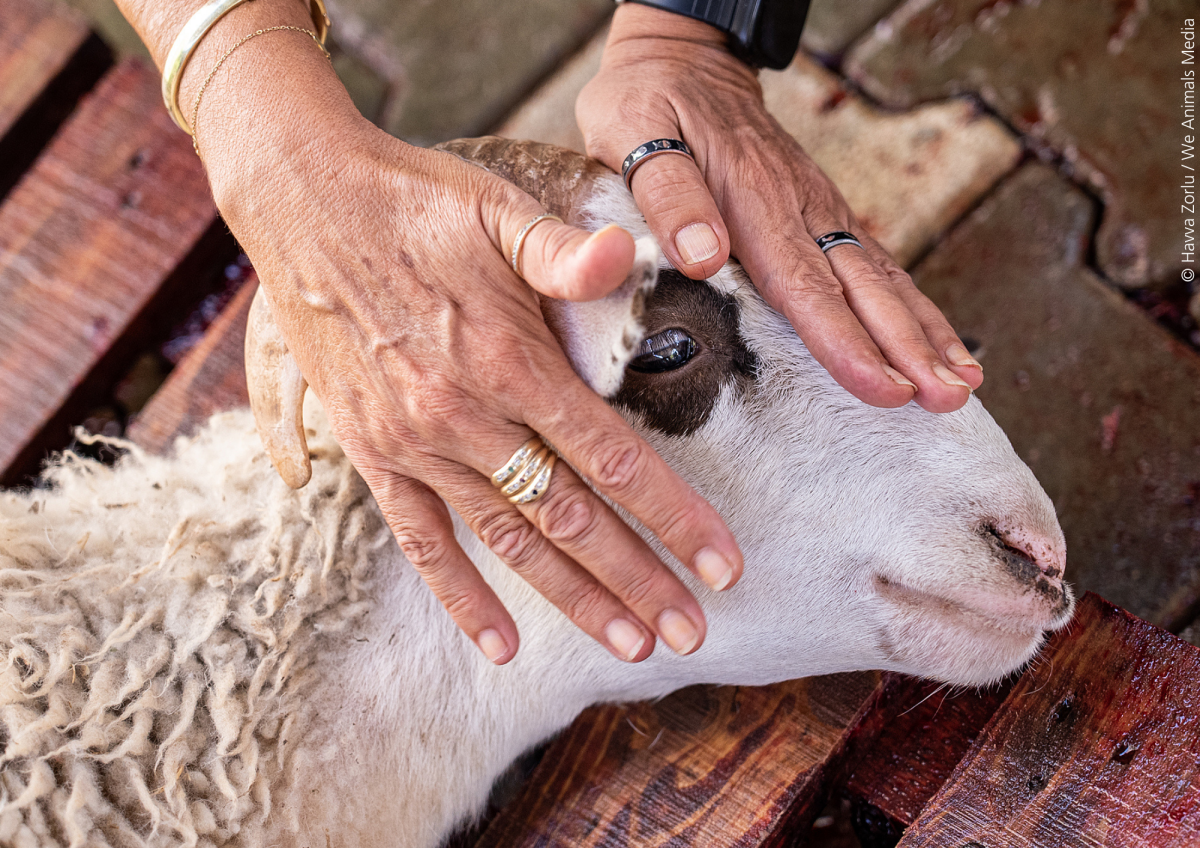
Brussels continues to stand out as an exception
Slaughter without stunning has been banned for several years now in Wallonia (2018) and Flanders (2017). In both regions, the ban was voted through and supported by parties also in power in Brussels.
Yet the Brussels Region continues to be an exception. Thousands of animals are still slaughtered without being stunned every year in the city's slaughterhouses.
GAIA sues the Brussels region
For years, the Brussels government has persisted in using the freedom of religion argument as a shield to justify its refusal to enact a ban on slaughter without stunning. This stance persists despite clear rulings from both the European Court of Justice and the Belgian Constitutional Court, affirming that such a ban does not infringe upon freedom of religion.
Now, with the landmark ruling by the European Court of Human Rights, it is reinforced that prohibiting this practice neither infringes upon freedom of religion nor constitutes any form of discrimination.
For GAIA, the Brussels Region's ongoing refusal to ban slaughter without stunning can only be attributed to political expediency. Such a callous disregard for animal welfare is indefensible. In response to this lax and unjust stance, GAIA has initiated legal action against the Brussels Region.
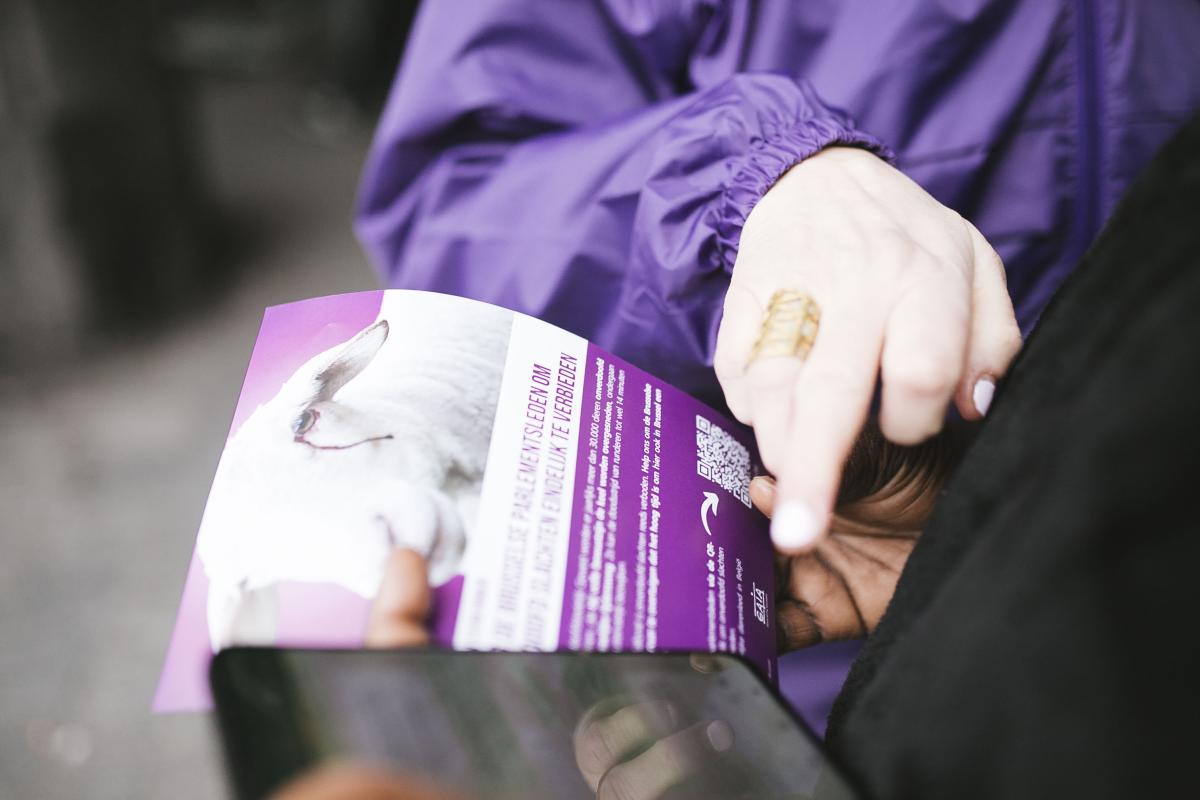
Opposition to stunning: an untenable position
To oppose mandatory stunning is first to ignore the scientific consensus on the extreme suffering caused by such a practice. Secondly, it means rejecting public opinion, which has been clearly expressed in opinion polls. Finally, it ignores the various rulings handed down by the highest European and Belgian legal institutions.
Scientific viewpoint
For some time now, there has been a scientific consensus that slaughter without stunning causes intense and prolonged suffering, with cattle suffering up to 14 minutes of agony.
The Federation of Veterinarians of Europe (FVE), which groups more than 300,000 practising veterinarians, and the Belgian Union Professionnelle Vétérinaire consider slaughter without stunning to be "unacceptable", whatever the circumstances. According to the European Food Safety Authority (EFSA), stunning "should always be carried out before the throat is cut" given the "serious animal welfare problems associated with slaughter without stunning".
Public opinion
A recent survey commissioned by GAIA (Ipsos, February 2024) shows the following data:
- Almost 8 out of 10 Brussels residents (77%) either support a ban on slaughter without stunning or do not have an opinion on it.
- Nearly all Brussels residents (93%) care about animals and their wellbeing.
- Nearly 7 out of 10 Brussels residents believe that animals suffer (a great deal) when slaughtered without prior stunning.
1 out of 3 Brussels residents (32%) would vote for a different party if the party they currently plan to vote for would not prohibit slaughter without stunning.


Legal matters
- The Court of Justice of the European Union has ruled that Member States are entitled to impose a reversible stunning procedure, and that such an obligation does not infringe the Charter of Fundamental Rights of the European Union.
- The Belgian Constitutional Court, for its part, fully validates the bans adopted by the Walloon and Flemish Regions, ruling that they do not unfairly violate any fundamental right. According to the Court, the bans meet a fundamental social need and are proportionate to the legitimate objective of promoting animal welfare.
- The European Court of Human Rights recently ruled that the ban on slaughter without stunning adopted by the Walloon and Flemish regions does not constitute a violation of freedom of religion or a form of discrimination. According to the Court, the two regions have taken a measure that is both justified and proportionate to the aim pursued, namely the protection of animal welfare.
The facts
Some Muslim community representatives believe that stunning before slaughter constitutes an violation of religious freedom.
And yet in countries with a large Muslim majority, such as Indonesia, Malaysia, Saudi Arabia and Jordan, it is accepted that meat from animals that have been stunned before slaughter is imported and consumed. In New Zealand, one of the world's largest exporters of halal meat, all ritually slaughtered animals are stunned beforehand.
Faced with the many arguments in favour of compulsory stunning, some members of parliament attempted to justify their position by arguing that the measure should form part of a wider set of provisions so as not to stigmatise any community. Let's be clear: today, with the upcoming new Brussels Animal Welfare Code, this argument is no longer acceptable.
GAIA calls on Brussels residents to put pressure on politicians
Through a vast media campaign and several grassroots actions, GAIA is calling on politicians to finally shoulder their responsibilities.
- In the morning, some 5,000 “moo-boxes” with the sound of a bleating sheep were handed out at in Brussels' city center. These “moo-boxes” symbolise the 5,000 sheep and goats that will be slaughtered without stunning before the June 2024 elections. In this unique way, GAIA wants to give Brussels residents a chance to let the voice of these animals be heard.
- A giant 60m2 poster was rolled out on Place Poelaert, a deliberately chosen location opposite the Palace de Justice, on 12 March.
- In addition, a poster campaign was also launched, and radio spots were broadcasted on national radio stations.
Members of parliament already in favor of a ban
We would like to mention below the MEPs who have recently guaranteed GAIA that they will support the ban on slaughter without stunning in Brussels. These MEPs are therefore not included in our e-mail action.
Victoria Austraet (indép.), Geoffroy Coomans de Brachène (MR), Juan Benjumea (Groen), Aurélie Czekalski (MR), Jonathan de Patoul (DéFI), Bianca Debaets (CD&V), Emmanuel De Bock (DéFI), Carla Dejonghe (Open VLD), Ariane De Lobkowicz (MR), Anne-Charlotte d'Ursel (MR), Soetkin Hoessen (Groen), Véronique Jamoulle (PS), David Leisterh (MR), Dominiek Lootens-Stael (Vlaams Belang), Joelle Maison (DéFI), Ingrid Parmentier (Ecolo), Isabelle Pauthier (Ecolo), Els Rochette (Vooruit), Françoise Schepmans (MR), Matteo Segers (Ecolo), Pascal Smet (Vooruit), Lotte Stoops (Groen), Julien Uyttendaele (PS), Cieltje Van Achter (NVA), Gaëtan Van Goidsenhoven (MR) and Guy Vanhengel (Open VLD).
